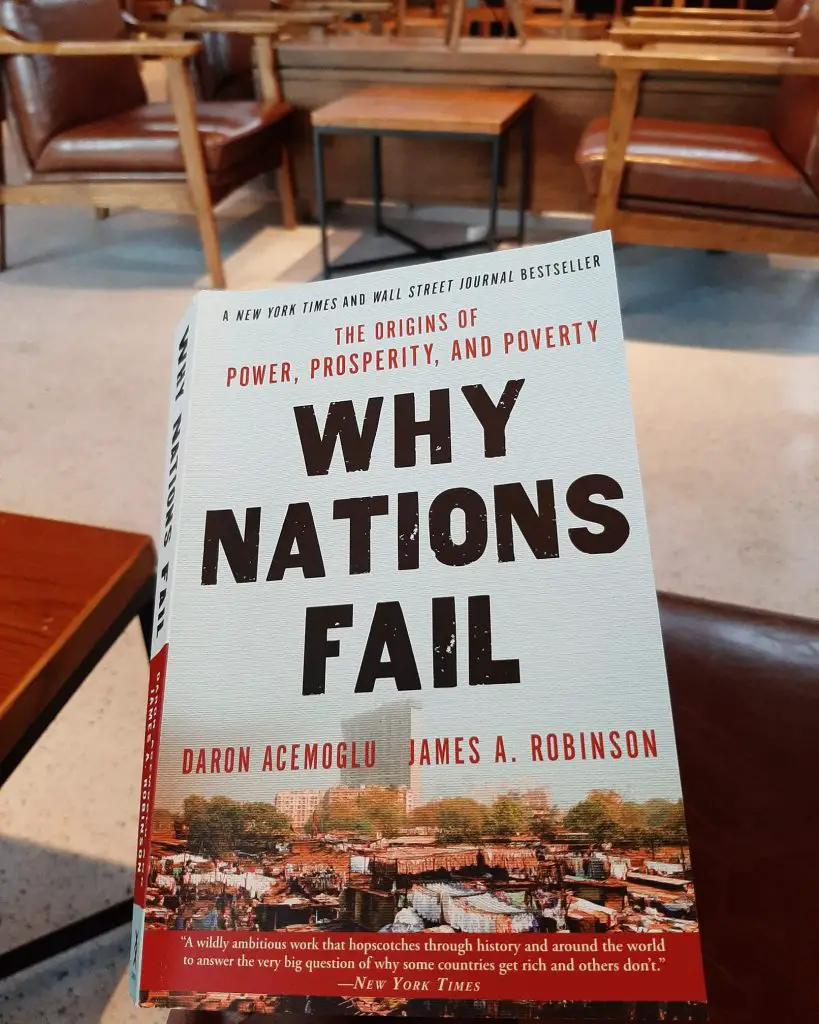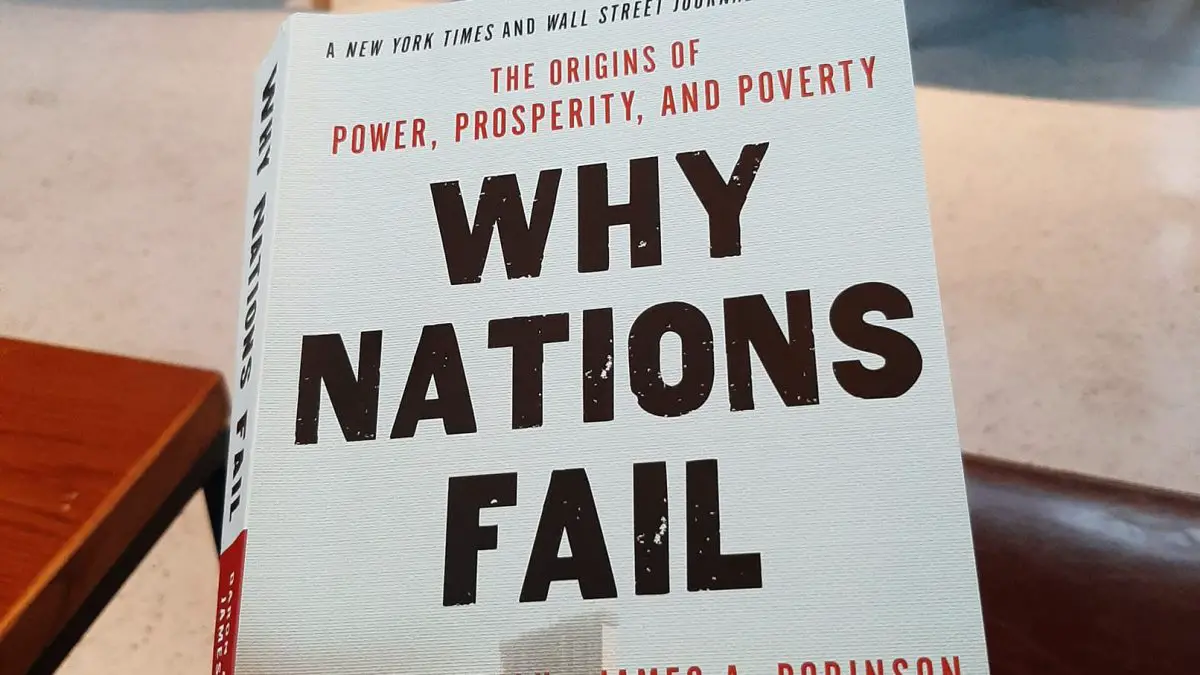What's a good read?
My years of learning have revolved on medical jargon and recently, I have developed an interest in history and politics to better understand what’s happening today. Bill Gates, in his blog GatesNotes, describes Why Nations Fail: Origins of Power, Prosperity, and Poverty as “an ultimate disappointment.” Well, bad publicity is still publicity and I have decided to give this book a chance because the title echoes a personal & painful question I have been seeking answers to. This book is relevant to me as a citizen of a country colonized by Spain for 300 years & America for 40+ years and invaded by Japan for a few years before gaining independence in 1946. I have always wondered if other colonized countries have used their dark, blood-stained history as a burdensome weight to catapult into a now prosperous nation. Reading this has enlightened me and I suggest you do too if we share the same agonizing curiosity.

I attest that this book, a product of 15 years of research, is an easy, enjoyable, yet highly edifying jumpstart to re-learn world history. The authors, Daron Acemoglu and James A. Robinson, painstakingly explain inclusive and extractive economic and political institutions as the major tipping point (vs. geography, culture, religion) that defines the trajectory of a nation towards peace and progress or downward-spiral to oppression, inequality, and poverty. I have found allies in the cited examples of African and Latin American countries who suffer the aftershocks of colonization until today. On a positive note, the journey of Botswana from a British stronghold in South Africa to a model of good governance today gives me hope that the rubbles of a collapsed nation can be reused to build a strong foundation. This book is very empowering as it makes us believe that a nation’s scars can heal from the traumatic whips of its oppressors. Be prepared to read some horrifying accounts of unimaginable brutality in humankind and embark on an emotional journey that fluctuates from vexation and sorrow to hope and optimism. While I am no economic or political analyst to provide a thorough and objective analysis of the authors’ theories, I recommend this book to broaden our perspective and spark friendly debates on why some nations fail and others prosper.
In retrospect, I remember very little of history taught in school. The exam questions focus on the dates, names of leaders and trailblazers, places of significant events, and trivial quizzes such as “Number your paper from 1 to 10 and enumerate the siblings of Jose Rizal.” As a grade-conscious student, a big chunk of my short memory is reserved for storing this information while neglecting the WHYs that should train students to be critical thinkers and not computers whose capabilities are judged from their ability to store and retrieve information. If you feel like you’re stuck in this kind of outdated education, pick up a book and let it be your teacher. In this case, the authors have been great professors and reading Why Nations Fail is one of my favorite history classes.
About the Guest Writer:
PJ is a physician who has developed an insatiable hunger for knowledge through books after battling cancer. She wishes to live a hundred lives and visit numerous cultures by indulging on history, historical fiction, biography, spirituality, and well-being. On her Facebook page Mientras Tanto, she shares book reviews and provoking insights, and urges people to pause for a while and appreciate profundity of life.
*This book review was originally published on the Mientras Tanto Facebook page on February 2nd, 2020.


